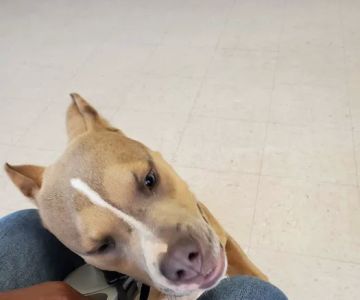Are Veterinary Workers Eligible for COVID Vaccine?
- Eligibility for COVID Vaccine for Veterinary Workers
- Vaccine Priority and Veterinary Professionals
- Health and Safety for Veterinary Workers During the Pandemic
- Vaccine Availability in Different States
- How Veterinary Workers Can Get Vaccinated
Eligibility for COVID Vaccine for Veterinary Workers
The COVID-19 pandemic has dramatically altered the way we live and work, and one question many veterinary workers have is whether they are eligible for the COVID vaccine. In the United States, vaccination eligibility has been determined in phases, with healthcare workers being prioritized for the vaccine. This includes individuals working in veterinary medicine, as they are often exposed to animals and people who may carry the virus.
In early phases of the vaccine rollout, many states included veterinary professionals in the broader healthcare worker category, meaning they were eligible to receive the vaccine alongside doctors, nurses, and other healthcare staff. However, eligibility varied by state and local jurisdiction, and some states delayed access for non-human healthcare workers due to supply shortages.
Vaccine Priority and Veterinary Professionals
As essential workers, veterinary professionals play a crucial role in maintaining public health, especially as they treat animals that could potentially transmit zoonotic diseases. This makes them an important part of the vaccine rollout. While veterinarians were given priority in many cases, other staff, such as veterinary technicians, assistants, and support staff, have had varying access based on local vaccine distribution policies.
To understand when veterinary workers can get vaccinated, it's essential to follow local health department announcements. In many areas, vaccination sites are organized by priority groups, and veterinary professionals might fall into phases two or three, depending on the vaccination strategy in each state.
Health and Safety for Veterinary Workers During the Pandemic
Beyond vaccine eligibility, health and safety measures in veterinary clinics and hospitals are critical during the pandemic. Veterinary workers have to take additional precautions, such as wearing personal protective equipment (PPE), practicing social distancing, and adhering to sanitation protocols. These practices help prevent the spread of COVID-19, especially since veterinary workers are frequently in close proximity to animals and clients.
It's also important for veterinary professionals to stay updated on COVID-19 protocols for their specific workplace, as the situation has evolved rapidly. Most workplaces have instituted policies that emphasize both human and animal safety, with specific training on how to handle animals safely while minimizing the potential for COVID-19 exposure.
Vaccine Availability in Different States
Vaccine availability has varied greatly across the U.S. In states where there were fewer cases or a lower population density, the vaccine rollout for veterinary workers may have been slower. On the other hand, in states with larger populations or more healthcare demands, veterinary professionals were often able to receive the vaccine earlier in the process.
For example, in California, where many veterinary clinics are located in urban areas, veterinarians were prioritized early in the vaccine rollout due to the high volume of people seeking medical care for their pets. In contrast, rural states with fewer cases of COVID-19 might have delayed vaccinations for veterinary workers until later phases.
How Veterinary Workers Can Get Vaccinated
Veterinary workers looking to get vaccinated should contact their workplace or local health departments for guidance. In many areas, vaccination is being offered at designated sites, such as hospitals or community centers, where people can sign up for an appointment. Some veterinary offices may even coordinate directly with local health authorities to offer on-site vaccination clinics for staff.
It is also important for veterinary workers to check their state's official vaccine portal or public health website for updates on eligibility and vaccine availability. Since the situation continues to change, staying informed is key to ensuring a timely vaccination.
If you're a veterinary worker still waiting for your vaccine, it's essential to stay patient and continue following health guidelines. The vaccine rollout continues to expand, and most health professionals expect that more veterinary staff will be able to receive their vaccines in the coming months.
As a veterinary worker, staying informed on COVID-19 guidelines and ensuring that you receive your vaccine when eligible is crucial for your health and the safety of your community. If you need more information on the vaccine process or vaccination options in your area, visit the official health department websites for the latest updates.











